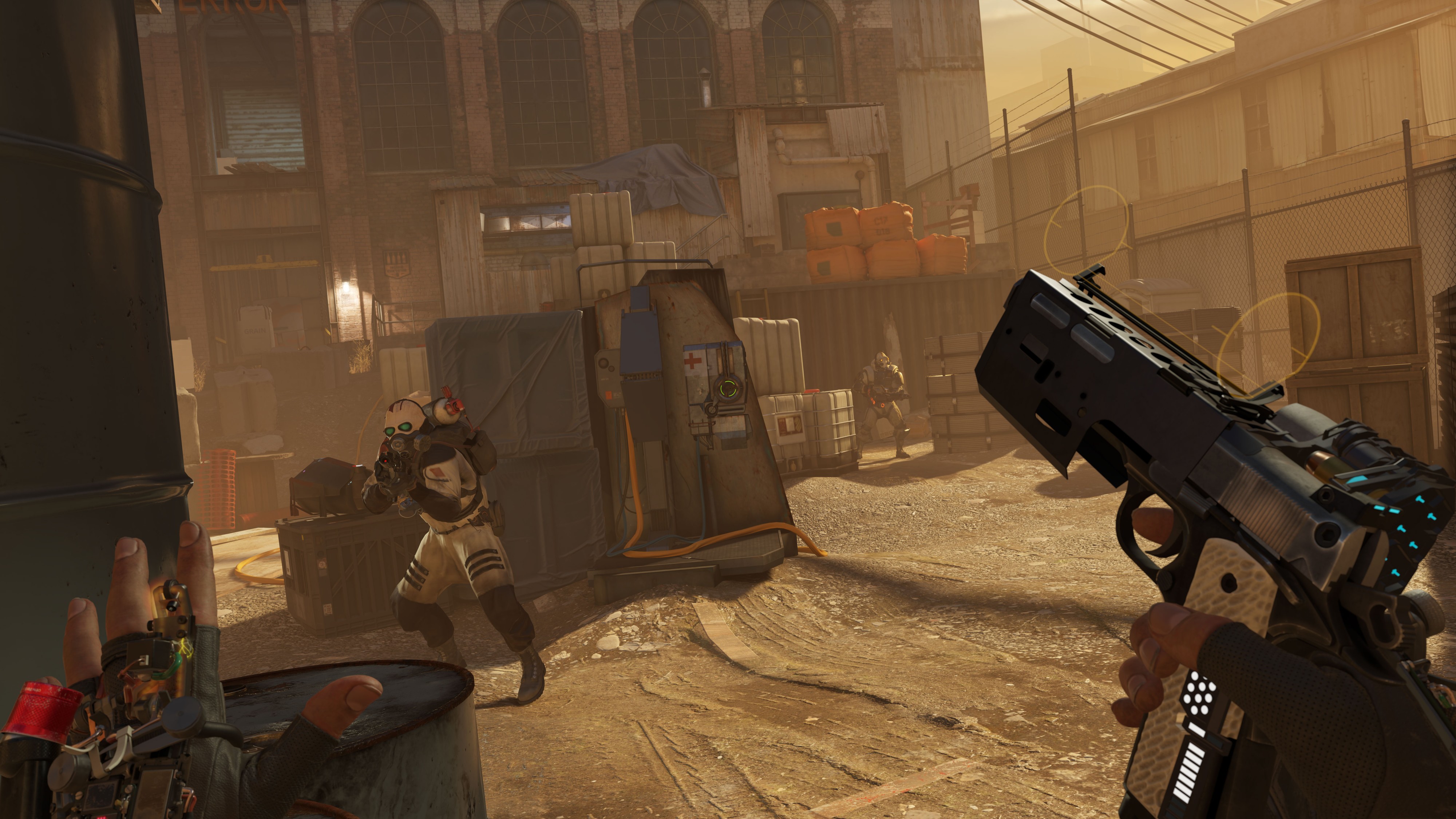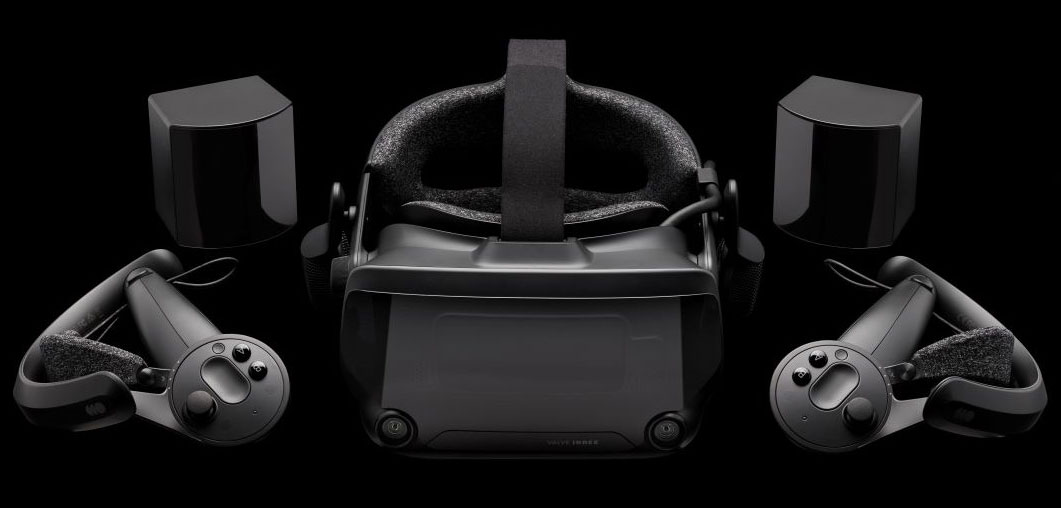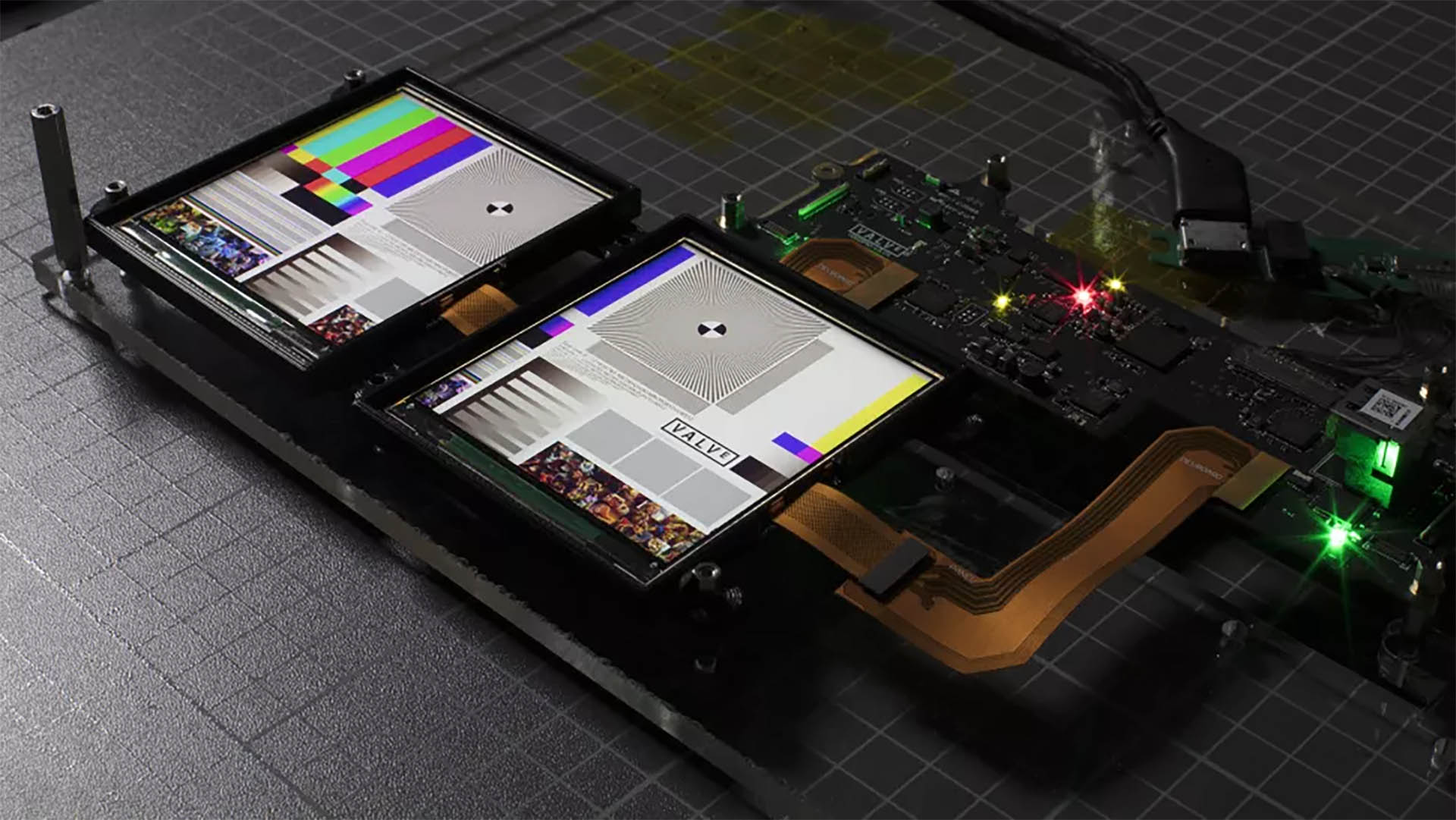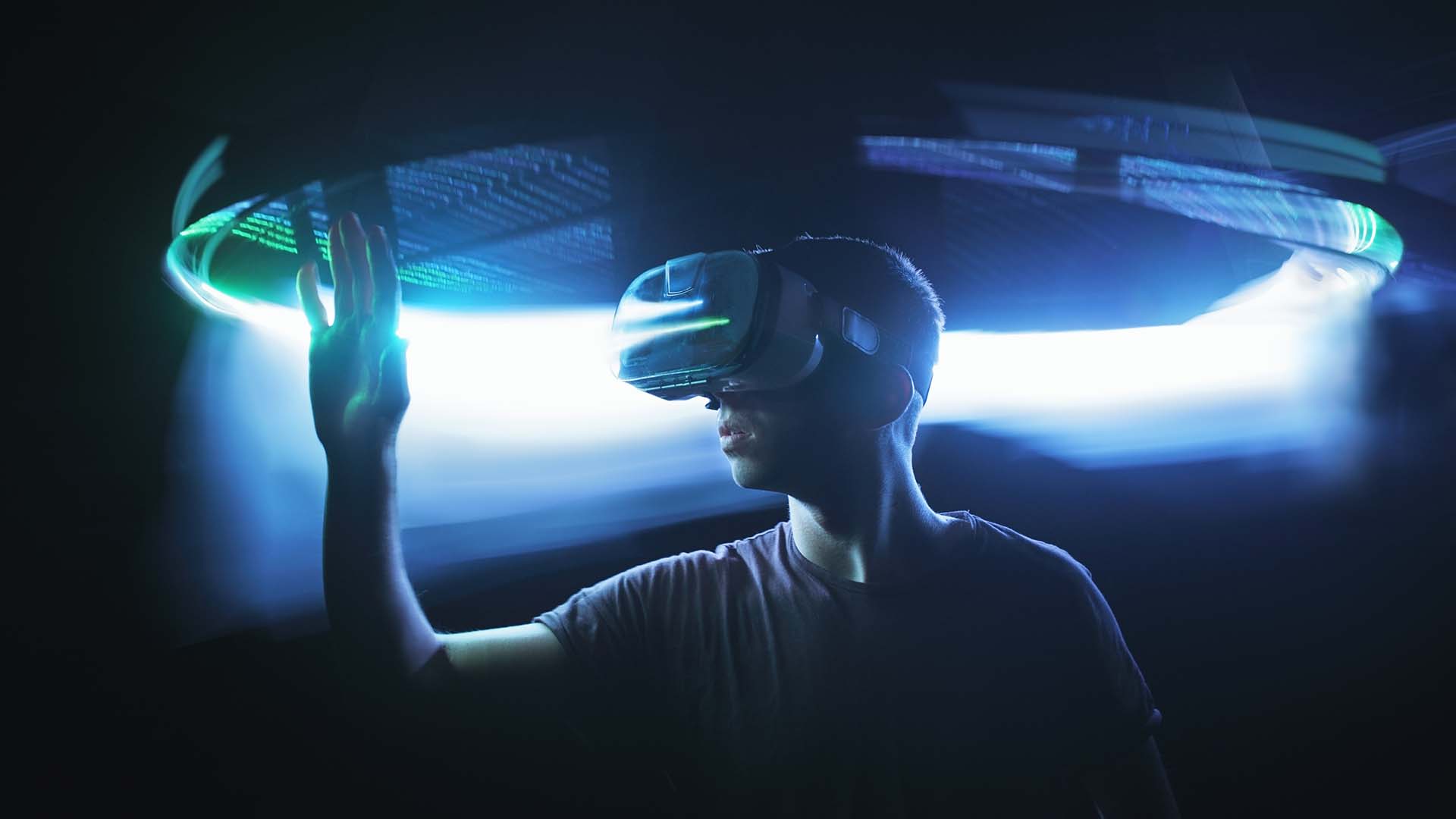
Virtual reality has come on leaps and bounds over the past few years. Whether we’re talking about the capabilities of the VR tech itself, its price, or the VR games now available to us, there’s no question that virtual reality has improved. While the Valve Index is still pricey, there are plenty of great budget options now available. The Oculus Quest 2 can be bought for a humble $300, and it’s a damn good headset by all technical standards.
But, as with all new technological innovations, there have been bumps along the road. For instance, while the Quest 2 is fantastic in terms of price-performance, it requires full Facebook integration to use, which has raised questions about the ethics of business practices which strongarm the user into a social media-sphere, and all the privacy concerns that this raises. And when it comes to the tech itself, there are still a number of issues to be worked out, such as the tracking of the HP Reverb G2.
“Our sense of reality is changing—away from the physical world, towards experience.”
Clearly there are hurdles to be overcome. Perhaps more importantly, however, there are questions about the very nature of VR tech and VR gaming that are often overlooked, but which are imperative for the VR gaming community to discuss. Will VR ever be good enough to imitate reality? And should we want it to? These questions are quite philosophical, and while I have some philosophy credentials myself as a published PhD researcher in philosophy, I thought it best to pick the brain of a professor.
James Tartaglia is professor of metaphysical philosophy at Keele University, and is an expert on the philosophy of technology. His latest book, Philosophy in a Technological World: Gods and Titans, wrestles with some of the more philosophical questions about VR, among other things. I asked Tartaglia for some insight into the potential problems that advanced VR might pose.
Could VR games be just like real life?
The philosopher Robert Nozick, in his 1974 book Anarchy, State, and Utopia, asked us to imagine that scientists have constructed an ‘experience machine’. This machine would plug into your brain and “give you any experience you desired”. The experiences it would feed us would feel exactly the same as if they were happening for real, but they wouldn’t be. Just like in The Matrix.
Could our VR tech ever become as good as Nozick’s imagined experience machine? I asked Tartaglia.
“Given the approach to technological development that dominates our world,” he says, VR tech like this “will be produced as soon as possible. We’re already on the trajectory, the goal is already within sight, so since there’s lots of money to be made from perfecting VR, the race is on. Afterwards, we’ll start trying to deal with the social problems it creates. I’ve no idea how long it will take, that’s a question for technologists, but I’m sceptical about the notion, popular among some philosophers, that we’ll run up against a principled barrier, I think that’s wishful thinking.”
Keep up to date with the most important stories and the best deals, as picked by the PC Gamer team.

What would it mean for our VR tech to become so good that VR games are indistinguishable from reality like this? Well, the game world would have to look and sound perfectly real, of course. That’s no small thing, either, because it’s difficult to see how even next-next-next-(and so on)-gen graphics and physics could perfectly emulate reality. But maybe it wouldn’t have to be exactly the same, maybe it could just be so immersive that it makes us feel like we’ve entered a new reality—one that’s slightly different from the real one.
However, for it to be really immersive, we’d also have to have immersive temperature, motion, balance, touch, and so on. The ‘slipping on a headset and holding two controllers’ idea probably wouldn’t cut it. Perhaps the only option would be to have something plug into your brain—perhaps one of those brain-computer interfaces that Gabe Newell thinks will someday be all the rage—and make it convince you you’re somewhere else, just like a dream. (But to be completely immersive, it’d have to make you forget real reality every time you use it, too.)
But do we want that? Do we want anything close to that?

Should VR games be just like real life?
I asked Tartaglia about Nozick’s experience machine and what it can show us about the distinction between reality and VR. “Nozick”, Tartaglia says, “wanted to show that real life is better, because only real life can deliver what we ‘want’: we want to be things and we want to do things, not just pretend. That was in 1974 and it seems to me that developments since then have shown that people have no trouble genuinely wanting to be and do things in VR. The worry that it’s only pretend is fading with each new generation. Our sense of reality is changing – away from the physical world, towards experience.”

Best VR headset: which kit should you choose?
Best graphics card: you need serious GPU power for VR
Best gaming laptop: don't get tied to your desktop in VR
It’s this shift in our sense of reality—away from the physical world and towards experience—that’s the crux of the issue. We seem to care less and less about whether our experiences are in reality or in a virtual world. But whether it’s real or virtual, if we experience it, is there any real difference?
On this question, Tartaglia says, “There would be a difference, we just wouldn’t be able to tell—it would be indistinguishable from the subject’s point of view. Think in terms of the physical world and it’s a trick; think in terms of experience and we’re changing our worlds.”
From our point of view, then, virtual reality in the experience machine would be indistinguishable from real reality. But that doesn’t change the fact that it would be different—we just wouldn’t realise that it is.

Tartaglia ends his latest book by describing—with more than a hint of tongue-in-cheek—a future ‘utopia’, where people live almost entirely in virtual realities that appear indistinguishable from real reality. I asked him about the problems such a future ‘utopia’ might pose.
“The problems would be endless," he says, “you’re effectively redesigning the nature of human life. One of the main points I was trying to make by imagining a VR utopia, and hence trying to get around some of the more obvious problems, was to indicate the enormity of those problems. One problem is isolation—VR cuts us off from other people to enclose us in our own little world, where interactions with others are something of a speculative reality: ‘is it really another person doing that? ’; ‘does it matter whether it is or not?’ … Another big problem is privacy, because virtual worlds, unlike the real one, can be completely monitored—and there’s money and power to be gained from that.”
“Think in terms of the physical world and it’s a trick; think in terms of experience and we’re changing our worlds.”
Apart from privacy concerns, isolation seems like perhaps the most pressing problem for such advanced VR, especially because we might not even realise we’re isolated, thanks to the tech itself and the pressure from those who develop and sell it trying to convince us otherwise. But if we entered such VR worlds, whether we realised it or not, we would in fact be isolated. We’d be losing touch with reality.
Tartaglia touches on this, too. In a world full of experience machines, “we’ll lose touch with other people and that won’t be good for society or individual mental health. We’ll also be monitored, and what is learned will be used to predict and manipulate us—free will is another traditional philosophical problem that VR will give a new lease of life. There’s also a full-blown existential problem with people increasingly abandoning the real world for VR, namely that we’ll make ourselves vulnerable to those who remain outside: if the internet could be brought down then we’d already be in a lot of trouble—bringing down VR, when people mainly live in it, would be a lot worse.”

Towards a constructive future for VR
Of course, these are all problems of the future, assuming society becomes as VR-centric and technologically advanced as we’ve been imagining. We might wonder why we should concern ourselves with it in the here and now. But think, for a second, about how far we’ve come in just the past two decades—does this future really seem so far off? And do we want to wait until we get there to start thinking about it? The only way to influence such a future is by altering its course before it arrives. It might be a problem of the future, but every step we take along the way can nudge that future into one direction or another.
“If new generations want power to determine their own futures, then they’ll need to demand policies on technological development from their politicians.”
It’s something we should start thinking about right now, not later. But what can be done? Tartaglia thinks we should be asking more from our politicians.
“If new generations want power to determine their own futures, then they’ll need to demand policies on technological development from their politicians.”
So perhaps we shouldn’t be too pessimistic about the future of VR because there are practical steps, like this, that we can take to nudge it in the right direction. I asked Tartaglia whether he thinks there’s any possibility for us to guide the development of VR in a constructive, beneficial, and unproblematic way. He thinks there is, but to an extent.
“Constructive and beneficial, yes; unproblematic, of course not—but the problems might be worth trying to deal with. I focused on VR in Gods and Titans because I think it is the developing technology most likely to dominate our future, and because that future could, in principle, be amazing.”
As for the VR gamer like you and I, if we want VR to continue developing in a constructive rather than destructive way, he has some advice for us.
“Don’t just buy into the latest developments because they’re new and you’re curious. Think about the future directions of VR being indicated by the latest novelty, form collectives, and collectively boycott when your concerns aren’t addressed. Take responsibility for being part of a foundational generation. If you want VR sex, that’s what you’ll get, sooner or later; if you want VR torture, that’s what you’ll be able to get, sooner or later, even if it’s banned; but if you want a good future for the human race, I don’t think you’ll want either of those, not on reflection. Try being a bit more philosophical about what you want.”
If we want to continue down this path of perpetual VR development, I think being a bit more philosophical about what we want is about the most sensible advice we can take.

Jacob got his hands on a gaming PC for the first time when he was about 12 years old. He swiftly realised the local PC repair store had ripped him off with his build and vowed never to let another soul build his rig again. With this vow, Jacob the hardware junkie was born. Since then, Jacob's led a double-life as part-hardware geek, part-philosophy nerd, first working as a Hardware Writer for PCGamesN in 2020, then working towards a PhD in Philosophy for a few years (result pending a patiently awaited viva exam) while freelancing on the side for sites such as TechRadar, Pocket-lint, and yours truly, PC Gamer. Eventually, he gave up the ruthless mercenary life to join the world's #1 PC Gaming site full-time. It's definitely not an ego thing, he assures us.

